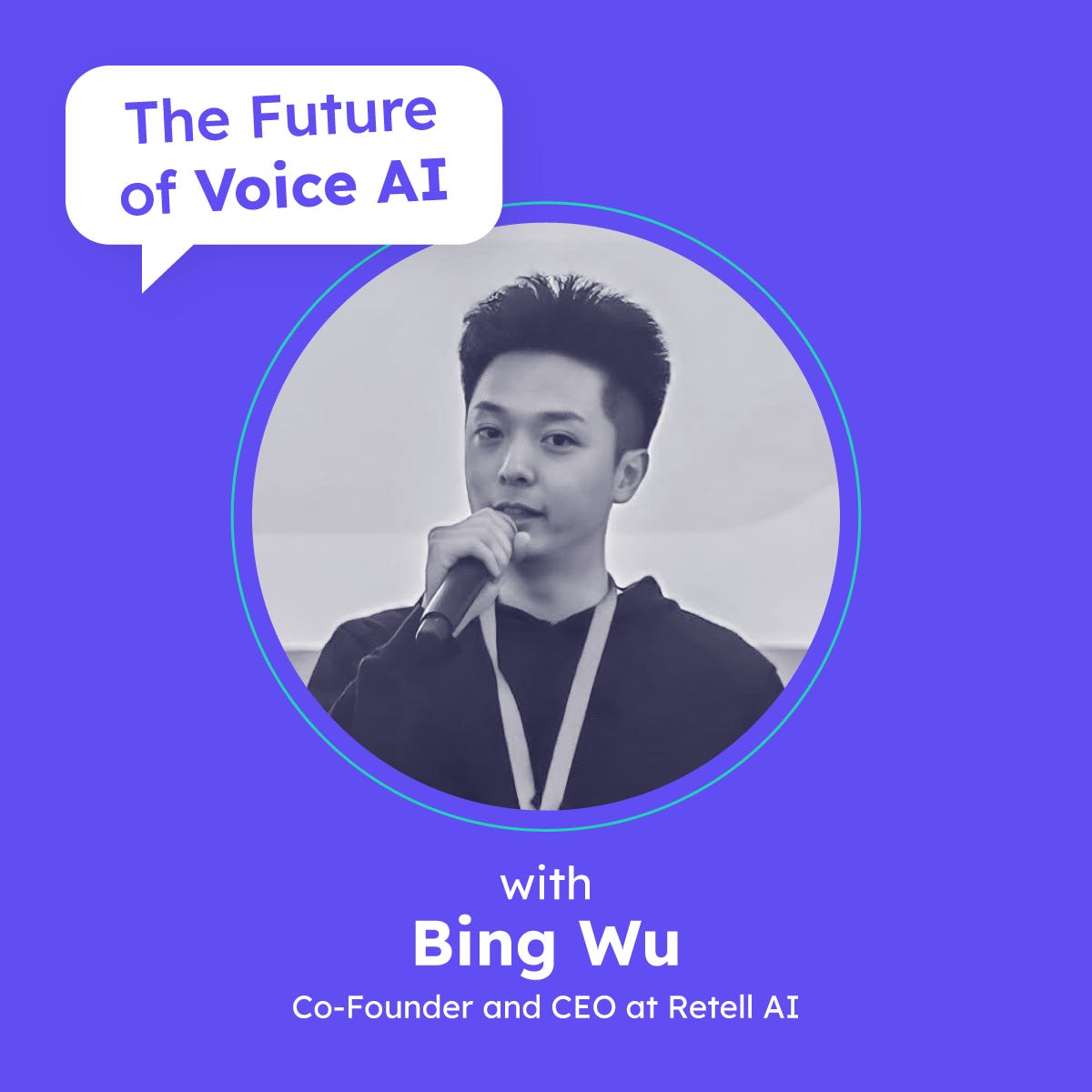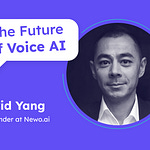In The Future of Voice AI series of interviews, I ask three questions to my guests:
- What problems do you currently see in Enterprise Voice AI?
- How does your company solve these problems?
- What solutions do you envision in the next 5 years?This episode’s guest is Bing Wu, CEO & Co-Founder at Retell AI.
Bing Wu is the co-founder and CEO of Retell AI, a platform for building production-ready voice AI. He spent three years at ByteDance (TikTok’s parent company), leading B2B and consumer products that reached billions of users. Bing founded two investor-backed startups in college, generating six-figure revenues.
Retell AI provides an API that enables developers to build human-like voice agents. Offering a truly conversational, fast, and empathetic Voice AI that can be easily configured for any industry and integrated into any product, Retell AI aims to push the boundaries of user-friendliness to a new level, reaching the threshold for mainstream adoption of Voice AI.
Retell AI’s mission is to be the leading platform for building and managing AI voice agents that revolutionize contact center operations.
Recap Video
Takeaways
Retell AI evolved from live streaming dubbing software to a dedicated voice AI platform.
Voice AI development faces challenges when combining LLM, TTS, and STT technology.
Issues with stitching these together include turn-taking and latency, which Retell is solving for.
They developed a custom turn-taking model that detects pauses and anticipates responses to address this.
Retell AI initially launched an API in early 2024 that enabled LLMs to speak, but shifted focus from individual developer tools to contact center solutions.
Warm transfers between AI agents and human agents are essential for business continuity.
They operate like an AI BPO, handling tasks end-to-end.
Solving complex issues comes down to a few key “levers,” like setting trigger points to transfer calls when escalation is needed.
Better dialogue management uses a multi-pronged tree to guide conversations:
The AI can follow different paths based on what’s said.
This reduces hallucinations and makes AI agents smarter.
Uses a knowledge base to pull relevant answers for specific cases.
In the short term, it’s more important to solve basic issues reliably than to tackle overly complex problems, which BPOs struggle with too.
Offshore BPOs face challenges with accents, training, and consistency.
AI agents could replace 60-80% of offshore agents in the next 2-3 years.
Pricing based on resolutions works for specific use cases tied to customer lifetime value (LTV).
Retell AI focuses on large-scale operations and uses consumption-based pricing to match existing operational costs and benefits.
OpenAI’s real-time API costs about 60 cents per minute, while Retell’s cascading model costs 10-12 cents per minute.
As with other AI technology, prices will drop as technology advances.
Bing warns that models only need to work once to create successful demos, which can be misleading.











